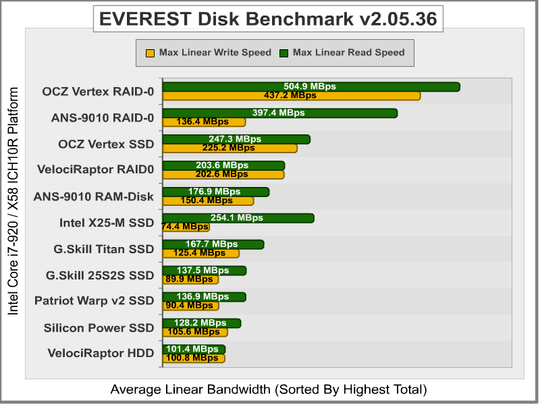7
1
I've got two 80GB Gen2 Intel SSDs, currently in RAID 0. I'm about to reformat for an unrelated reason, and I'm wondering if maybe I should just leave them as independent drives. The primary reason being so that I could use TRIM. I think I'd also get a faster boot, as a bonus.
As it is, they're lightning fast. The very second that I log into Windows, I get zero delay responsiveness when starting apps (the biggest delay is moving the mouse to the icon, it's pretty awesome). I'm thinking I won't really lose much, though, as I doubt that speed is dependent on the RAID.
This is my main computer (Windows 7, 3.6GHz i7 920, 6GB DDR3), so I use it for everything, but my primary uses are programming and gaming, so IO speed (particularly random read) is something I care a lot about.
So do you guys think that TRIM is worth giving up whatever speed gains I'm getting from the RAID?

2I don't believe RAID has shown significant random read speed time decreases, so you should be ok with separate drives. – Phoshi – 2010-01-31T18:27:01.533
TRIM is probably more worthwhile than the striping, but I'd first pester Intel a little bit and remind them that we want TRIM pass-through for RAID. – Ben Voigt – 2012-05-06T01:30:43.130